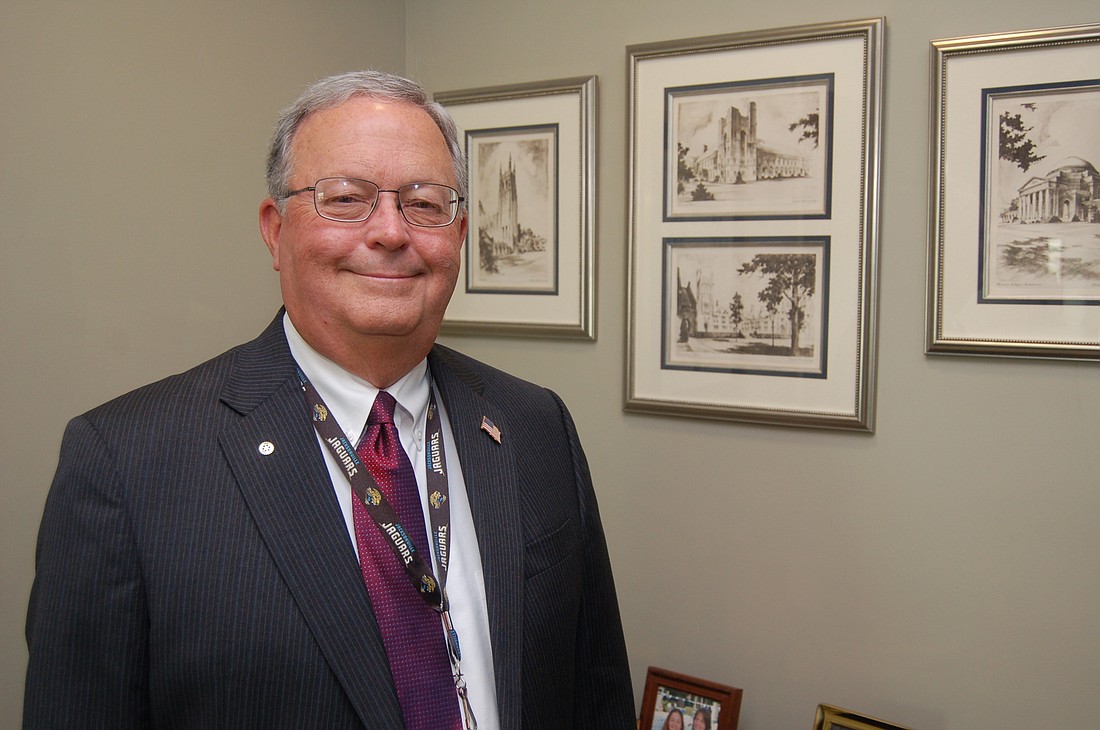
When Charlie Cofer took office Jan. 3 as public defender for the 4th Judicial Circuit, he knew going in he was facing challenges.
His predecessor, Matt Shirk, two months before the primary election, was found by the Florida Commission on Ethics to have violated several state laws related to professional and personal conduct. Shirk was censured, reprimanded and fined $2,500 by the state and voted out of office after a single term.
Cofer said before he was sworn in, he became aware that the public defender’s office was in the precarious financial position of being likely to run out of money before June 30, the end of the fiscal year.
“It was projecting out very poorly. We had six months to make adjustments,” he said.
Cofer went to work with assistance from the state Justice Administration Commission, which provides accounting, budget, financial and human resource services to public defender’s offices and state attorney’s offices in the 20 judicial circuits.
Commission Executive Director Alton Colvin said it’s possible for a public defender or state attorney to have a budget shortfall caused by a transition of leadership. For example, changes can result in having to pay accrued leave to attorneys and support staff who are let go by a new administration, which can affect payroll expenses for the fiscal year.
But it’s almost unheard of to take over an office that’s operating under a spending plan that will run out of money before the end of the budget year.
“Charlie inherited an unusual situation,” Colvin said.
Fourteen support staff members hired by Shirk resigned before Cofer’s first day in office. Some of the positions were eliminated – such as the $70,000-a-year public information officer position, a role Cofer has assumed. Other positions were temporarily vacant until the office’s finances were under control.
“That got us caught up on the salary and benefits side. It gave us a little breathing room,” Cofer said.
Another fiscal issue was the office’s case management system. Shirk had engaged an outside company that was costing about $80,000 per year.
Cofer said it made fiscal sense to “get rid of it” and go back to the way case management was handled before it was outsourced.
“The office had a system that had been written in-house that really didn’t cost anything other than the salary for the employee that wrote the program,” he said.
The new policy was to “look at every expense and cut out anything that didn’t aid the mission of the office,” and “we got squared away and came in under the budget,” Cofer added.
A new state attorney also took office in January after voters chose Melissa Nelson over incumbent Angela Corey. Cofer said having new administrations on both sides of the circuit’s criminal justice system offered an opportunity to “elevate the level of understanding” between the state’s prosecution and public defense offices.
He and Nelson meet monthly to discuss issues that may arise between the offices and look at ways to improve the administration of justice.
“We are adversaries, but we are not enemies. We have an adversarial system, but we also have a system in which we are professionals,” Cofer said.
A former assistant public defender and then a Duval County judge, his outlook on the system and how it works has changed after nine months in office.
“The first week I took office, Jim Kowalksi (executive director of Jacksonville Area Legal Aid) sent me a letter. The general theme was ‘congratulations – but be patient with yourself.’ That’s some of the best advice I’ve ever received,” Cofer said.
As a judge, Cofer made decisions and expected them to be followed, but as public defender, he’s learned it’s important to consult with those who may be affected by a decision and take the time to study a problem.
“I know I’m the boss here – so whatever I say goes – but it works better if I make really good decisions and it takes time to get those things done,” he said.